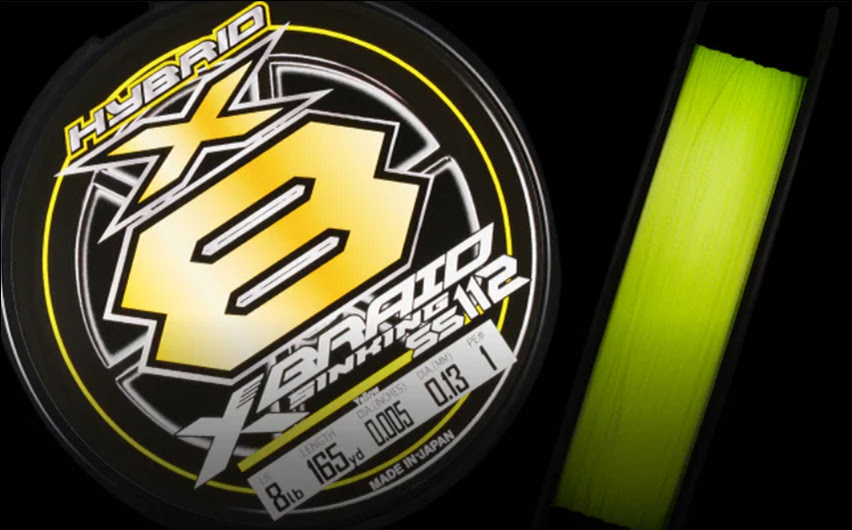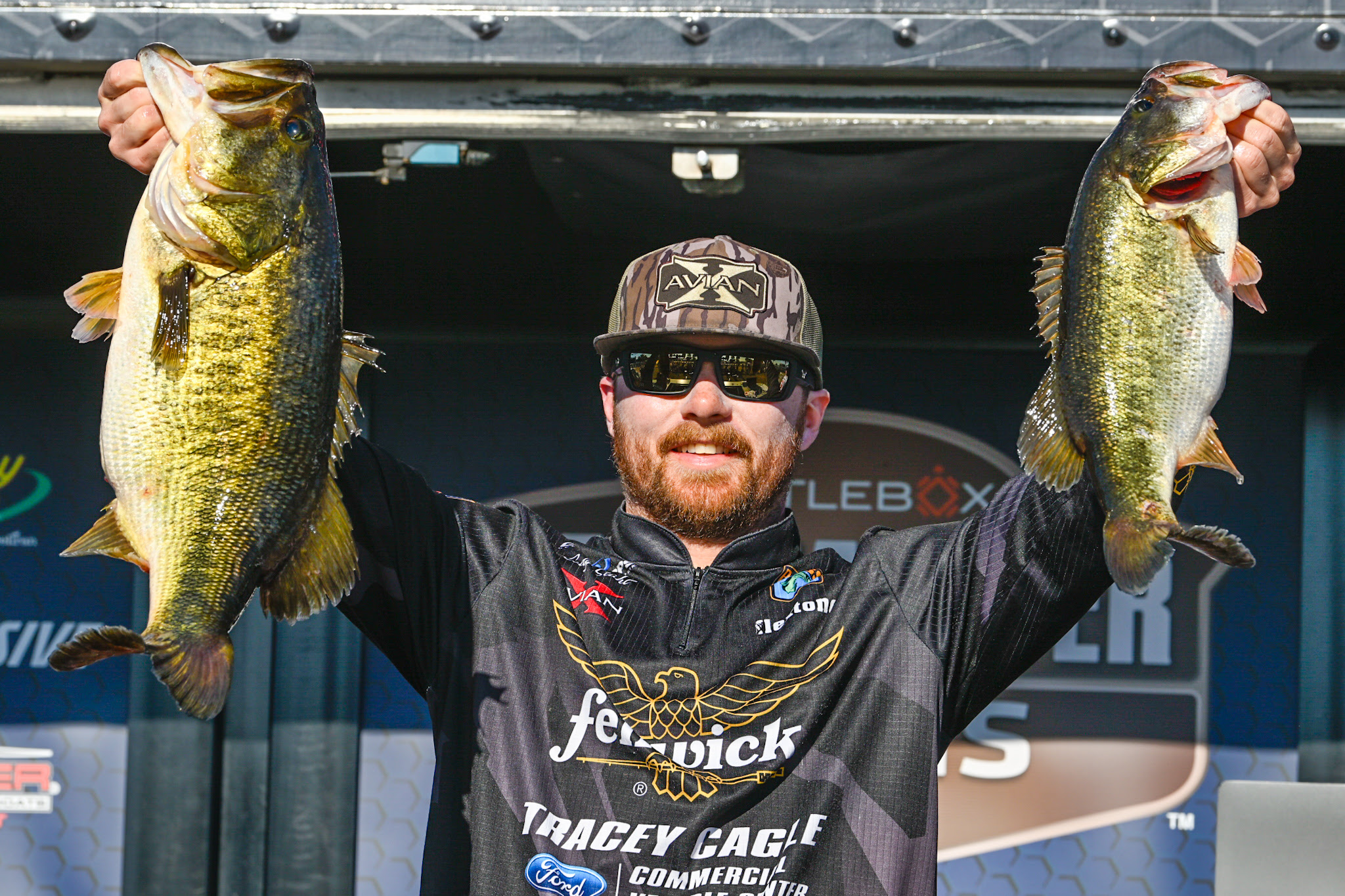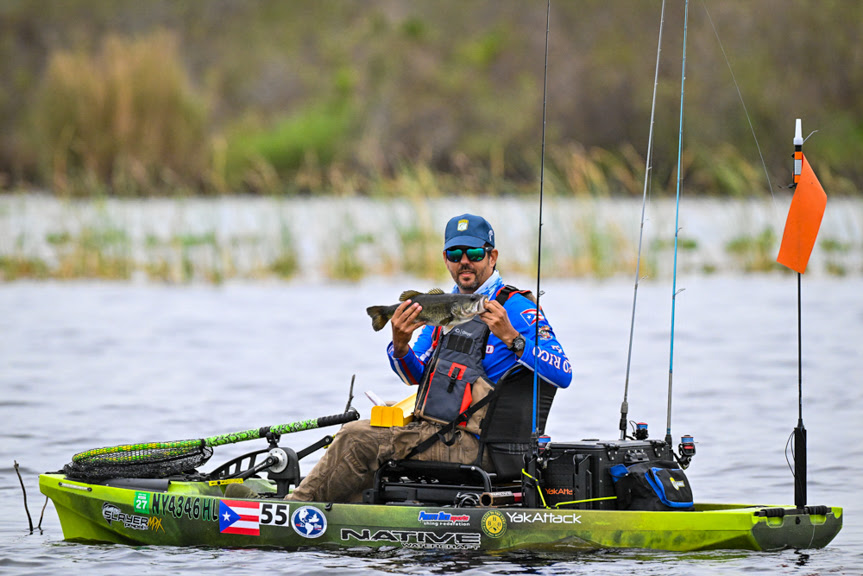DAIWA: XBRAID Successfully Sinks
|
XBRAID’s new Sinking SS112 braid reduces live bait fatigue, keeps rigs on the bottom, cranks with authority, advances FFS techniques, and lets you explore the entire water column with authority. |
|
FOOTHILL RANCH, CA (September 4, 2024) – The influence line selection has on performance is substantial. A perfectly paired rod and reel spooled with the wrong line massively affects the state of play. For example, if you fish 25-lb. monofilament on a rod rated for 8- to 12-lb., casts will be short and clunky and there’s but a scarce chance of feeling a bite. At the opposite end of the spectrum, spooling with a premium specialty line that matches your exact techniques and or conditions, and the results are splendid. This is the baseline thinking behind XBRAID’s new Sinking SS112 fishing line – the SS standing for “slow sinking”. Before delving into the specific merits of Sinking SS112, it’s prudent to showcase Japan’s XBRAID family and what makes these lines so groundbreaking. Let’s begin at the beginning. For years, braided lines woven with Dyneema® were considered the most progressive, but that’s changing as IZANAS® takes the lead. The ultra-high molecular weight polyethylene material has the highest strength and modulus of any manmade fiber. How strong? Try nearly 8 times stronger than piano wire of the same weight. “Beyond IZANAS being an unrivaled base material, it’s how individual weights of the entire XBRAID family are manufactured that makes it far superior to the competition,” said DAIWA Field Marketing Manager, Chris Martin. “Other companies take a single base material and stretch it to achieve the desired diameter and weight. This creates inconsistencies, which can lead to weak spots.” |
|
Uniquely, each diameter and weight of XBRAID is produced from a dedicated spool. So, for example, if 10-pound XBRAID is the desired final weight, the base material fiber is 10-pound. No stretching. No irregularities. Martin goes on to underscore the weaving process employed for all XBRAID lines. “The actual weaving machines are proprietary and built in-house to create the WX Weave. In traditional weaving processes used by other brands the line comes off multiple bobbins. That means an in an 8 strand weave there are 8 bobbins spitting out line. That results in line twist and inconsistencies.” With XBRAID’s “top secret” WX Weave, the strands come together uniformly to yield exceptional consistency. Moreover, the XBRAID process produces a denser weave – 1.5 X the competition – with more material in the finished product. That tighter weave results in a smoother, more abrasion resistant, and exceptionally sensitive fishing line. The meticulous process also takes twice as long as the competition, and anglers are the beneficiaries of the patient production. The WX Weave also generates a rounder and slightly stiffer line. This modest amount of stiffness makes it much easier to handle and tie, nearer how monofilament feels. This manageability translates into fewer bird’s nests on the cast, too. But if you happen to snarl, the micro stiffness makes it much easier to untangle the knot. |
|
|
MULTIPLE APPLICATIONS FOR XBRAID SINKING SS112 A higher sink rate clearly improves efficacy for certain fishing techniques. For starters, XBRAID Sinking SS112 offers a massive advantage in saltwater environs. We’ve all seen live bait exhaust while struggling against buoyant line – and most braids float. But spool up with XBRAID Sinking SS112, and your bait is driven down, reducing fatigue on mullet, sardine, pilcher, or whatever your baitfish of choice. “XBRAID Sinking SS112 also keeps your bait pinned to the bottom,” said Martin. “That’s crucial for so many bass fishing applications, like dropshotting, Ned rigging, Neko rigging, and Wacky Rigging, as well as jigging a vertical spoon or keeping a shaky head on the bottom.” Sinking line is beneficial, too, when exploring a sizable section of the water column, say with a spybait, lipless crankbait, or hair jig. Add to that crankbait fishing, as sinking line reduces line bow and maximizes a bait’s running depth. Forward-facing sonar (FFS) enthusiasts also have a friend in XBRAID Sinking SS112. Getting a lure down rapidly to detected fish is crucial, as they mightn’t be there long. Sinking line accelerates the operation. |
|
|
How does XBRAID Sinking SS112 achieve such depths? It’s all in the materials and manufacturing. Martin talked about the materials: “It’s an 8-strand carrier like the other XBRAID models, but what makes Sinking SS112 different is the equal parts blend of IZANAS® and ester (polyester). Ester has less stretch than monofilament and fluorocarbon – which is used by other brands – and is higher density than water, so it sinks. It’s in the weaving, too. “The IZANAS and ester are interwoven for greater density and consistency,” said Martin.” Other brands typically wrap braid material around fluorocarbon, which promotes bunching and irregularities.” XBRAID Sinking SS112 comes in a high visibility yellow for maximum management. To that, the line is UV activated for lowlight fishing conditions. |
|
|
XBRAID Sinking SS112 FEATURES:
MSRP $25.99 |
|
For Daiwa’s latest color catalog and/or information on Daiwa dealers in your area, call Daiwa’s Customer Service Department at 562-375-6800 or e-mail inquiries to: [email protected]. The URL for Daiwa’s web site is daiwa.us |

















